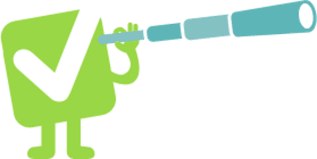On the internet, grammar and spelling errors are common for many reasons. Better spelling, grammar, and punctuation help you communicate with more people because
skip to main |
skip to sidebar
 Spell check and proofread all written internet communication because errors diminish the credibility of the message.
Spell check and proofread all written internet communication because errors diminish the credibility of the message.
 Do not use all caps on the internet because it is shouting. All caps is considered shouting on the internet. Shouting is not polite. Therefore, it is bad netiquette to use all caps on the internet because shouting is not polite.
Do not use all caps on the internet because it is shouting. All caps is considered shouting on the internet. Shouting is not polite. Therefore, it is bad netiquette to use all caps on the internet because shouting is not polite.
 Honesty is good netiquette because network communications are not valid without it. Be honest in your profiles and other communication because honesty creates the best online experience.
Honesty is good netiquette because network communications are not valid without it. Be honest in your profiles and other communication because honesty creates the best online experience.
 Do not flame or respond to flames because they are uncivilized. A flame is a personal insult communicated through the internet. Netiquette rules civilize the internet, cybersphere, because it is the social code of the internet.
Do not flame or respond to flames because they are uncivilized. A flame is a personal insult communicated through the internet. Netiquette rules civilize the internet, cybersphere, because it is the social code of the internet.
 Be conservative in email you send and liberal in email you receive because quality is better than quantity.
Be conservative in email you send and liberal in email you receive because quality is better than quantity.
Conservative composition and sending ensures your messages are read. No one reads long emails completely and people who send too many emails get ignored. If your email is not read it is low quality no matter how well you wrote it.
Wise Internet
"A wise man can learn more from a foolish question than a fool can learn from a wise answer."
Netiquette Rule #1: Spell check
Posted by
Unknown
on Thursday, January 3, 2013
/
Comments: (0)
Netiquette Rule #2: No All Caps
Posted by
Unknown
/
Comments: (0)
Using all capital letters in electronic communication is like shouting at someone in person. It is a common technique used by HUSTLERS to get attention.
Netiquette Rule #3: Tell the truth
Posted by
Unknown
/
Comments: (0)
Without truth you have nothing but entertainment. The internet is not legitmate without truth. The internet is not a court of law, so you do not have to tell the whole truth or fill out forms completely, but you do have to be honest for proper netiquette.
Netiquette Rule #5: Do not flame
Posted by
Unknown
/
Comments: (0)
A troll is a catch all term for trouble maker. There are many ways to make trouble. Posting flames is one way.
A flame is a specific type of action by troll. It's personal. An off topic comment is not necessarily a flame.
Netiquette Rule #6: Do not spam
Posted by
Unknown
/
Comments: (0)
Spam, in terms of security, is an automatically generated email sent to a bulk list of email addresses. Any unsolicited email is spam, but the ones that pose the most risk are automatically generated ones to bulk address lists.
Netiquette Rule #7: Be conservative
Posted by
Unknown
/
Comments: (0)
Conservative composition and sending ensures your messages are read. No one reads long emails completely and people who send too many emails get ignored. If your email is not read it is low quality no matter how well you wrote it.
Popular Posts
-
Do not use all caps on the internet because it is shouting. All caps is considered shouting on the internet. Shouting is not polite. There...
-
Honesty is good netiquette because network communications are not valid without it. Be honest in your profiles and other communication bec...
-
Nowadays, Internet is no longer just about e-mail and Web sites. The net has become the critical medium, powering a growing list of reve...
-
Be clear Make sure the subject line (e-mail) or title (web page) reflects your content. Use appropriate language If you have a questio...
-
Do not flame or respond to flames because they are uncivilized. A flame is a personal insult communicated through the internet. Netiquette r...
-
Be yourself online because you are not anonymous online and others users are real people too. Do not say or do things online that you woul...
-
Do not spam or follow pop-up and spam links because they can lead to viruses, spyware, and malware. Spam, in terms of security, is an ...
Blog Archive
-
▼
2013
(13)
-
▼
January
(13)
- Netiquette Rule #1: Spell check
- Netiquette Rule #2: No All Caps
- Netiquette Rule #3: Tell the truth
- Netiquette Rule #4: Be yourself
- Netiquette Rule #5: Do not flame
- Netiquette Rule #6: Do not spam
- Netiquette Rule #7: Be conservative
- Netiquette Rule #8: Do not send email at night
- Netiquette Rule #9: Shop secure sites
- Netiquette Rule #10: Use Discretion
- Internet Guidelines
- Internet Nowadays
- What is Internet?
-
▼
January
(13)
The information and images shown are not owned by the blog administrator. No copyright infringement. Powered by Blogger.
Wise Internet All Rights Reserved.
Blogger Template created by Deluxe Templates
Wordpress Theme designed by WebDesignLessons.com
Blogger Template created by Deluxe Templates
Wordpress Theme designed by WebDesignLessons.com
